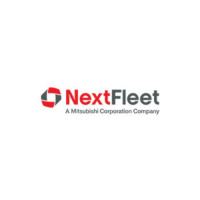Why Is Vehicle Fleet Management Crucial for Modern Businesses?

Strong 8k brings an ultra-HD IPTV experience to your living room and your pocket.
Managing a fleet of vehicles—whether it’s 5 or 500—is no small feat. From fuel costs to driver safety, route planning to compliance, the logistics involved can get overwhelming without a proper strategy. That’s where Vehicle Fleet Management comes in. It’s not just about tracking cars and utes—it’s about optimising every aspect of your mobile operations to improve efficiency, reduce costs, and stay compliant with national regulations.
In today’s fast-paced business environment, organisations across industries—logistics, construction, healthcare, local councils, and even SMEs—are recognising the importance of professional fleet management to keep things running smoothly.
What Is Vehicle Fleet Management?
Vehicle fleet management refers to the systems, software, and procedures used to coordinate and maintain a company’s fleet. This includes:
- Vehicle acquisition and leasing
- Maintenance and repairs
- GPS tracking and telematics
- Route optimisation
- Driver behaviour monitoring
- Fuel management
- Safety and compliance
- Vehicle disposal or resale
A strong management system allows business owners and operations teams to know where every vehicle is, how it’s performing, and how much it’s costing—so they can make smarter decisions in real time.
Key Benefits of Effective Fleet Management
1. Reduced Operational Costs
Fuel, repairs, and insurance are among the top expenses for businesses with vehicle fleets. Proper monitoring helps reduce idle times, avoid inefficient routes, and schedule timely maintenance to prevent costly breakdowns. A good fleet management system also helps prevent fuel fraud and overuse.
2. Improved Driver Safety
Driver safety isn’t just about protecting staff—it’s about protecting your brand and bottom line. Modern systems can monitor driving habits like harsh braking, speeding, and fatigue, offering training insights to reduce accidents.
3. Regulatory Compliance
In Australia, managing driver fatigue, keeping maintenance records, and adhering to road laws is non-negotiable. Fleet management helps businesses stay compliant with Work Health and Safety (WHS) requirements and National Heavy Vehicle Regulator (NHVR) standards.
4. Environmental Responsibility
Reducing emissions is no longer just a PR move—it’s often a legal requirement. Vehicle fleet management helps you reduce your carbon footprint through better fuel management and route optimisation.
5. Better Vehicle Utilisation
Know which vehicles are underused, overworked, or nearing the end of their lifecycle. This helps you rotate your fleet effectively and plan for new investments without surprises.
Common Challenges Businesses Face
Without proper management, businesses may experience:
- Unexpected breakdowns
- High fuel usage
- Poor driver accountability
- Missed maintenance schedules
- Insurance disputes or liability claims
- Difficulty managing logbooks and service records
In such cases, partnering with a professional service or investing in the right software can save significant time and money. Many Australian businesses now use advanced vehicle fleet management platforms to automate reports, schedule services, and track everything from one dashboard.
What to Look for in a Fleet Management Partner
Choosing the right partner is crucial. Here’s what to consider:
Custom Solutions: Every fleet is different. Choose providers who tailor services to your size, industry, and specific needs.
Technology Integration: Look for systems that integrate with GPS, dash cams, fuel cards, and mobile apps.
Data & Reporting: The more insights you get, the better your decisions. Your provider should offer real-time dashboards and monthly reports.
Customer Support: Australian businesses need responsive support, preferably local, especially when dealing with road incidents or regulatory queries.
Scalability: Can your solution grow as your business expands?
Transitioning to a Managed Fleet
Making the shift from in-house tracking to a professionally managed system doesn’t have to be difficult. The process usually involves:
Fleet audit and goal setting
Installation of tracking and telematics devices
Data integration and setup of online portals
Staff training and onboarding
Ongoing monitoring and optimisation
Most providers will guide you through every step to ensure minimal disruption to daily operations.
Fleet Management Trends in Australia
The fleet management industry is rapidly evolving. Some current trends include:
EV Integration: As more businesses go electric, fleet managers are planning for EV charging, range tracking, and cost comparisons.
Predictive Maintenance: AI and machine learning help predict when parts will fail before they actually do.
Carbon Reporting: With increased focus on sustainability, carbon tracking is becoming essential for grant applications and certifications.
Remote Management Tools: Apps and portals allow managers to monitor their fleet from anywhere, ideal for hybrid work setups.
Conclusion
Whether you're managing a small set of delivery vehicles or a large logistics operation, fleet management is no longer optional—it's essential. With rising costs, compliance pressure, and customer expectations, investing in a smart solution today will save money and headaches tomorrow.
For businesses looking to optimise, streamline, and protect their fleet operations, NextFleet offers cutting-edge solutions tailored to Australian industries.
Note: IndiBlogHub features both user-submitted and editorial content. We do not verify third-party contributions. Read our Disclaimer and Privacy Policyfor details.






